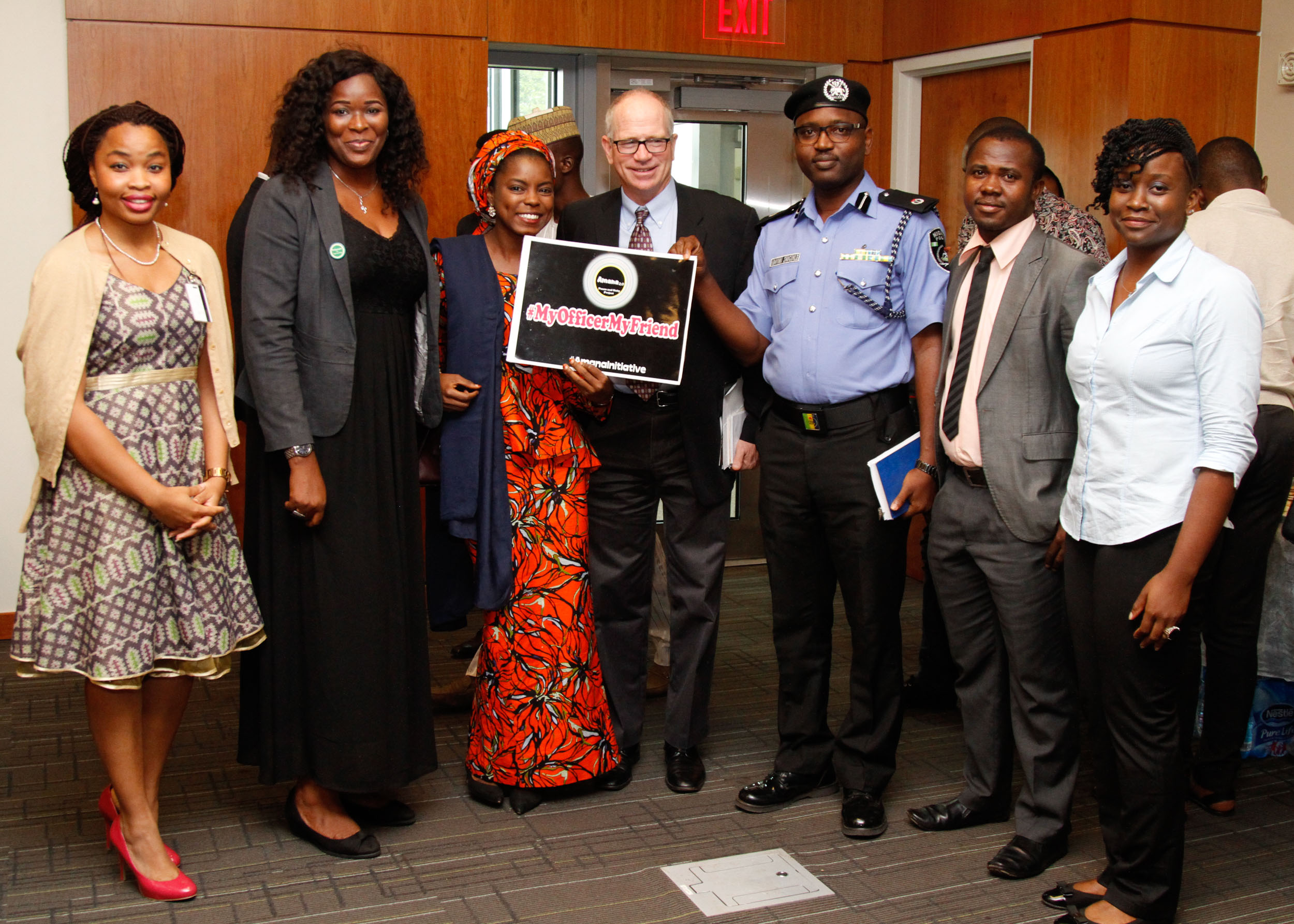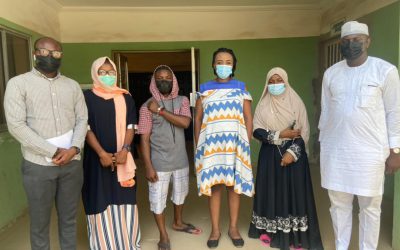Fahimta is understanding in the Hausa language. That is what the Amana participants from the American University of Nigeria define trust to mean.
Trust means different things to different people: to the buyer at the market, trust is underscored when he or she picks one product over the other; to the passenger, trust is defined when he is comfortable to allow the taxi driver take him to his destination – and it is the skepticism of it that sometimes make us reject one over the other.
Evidently, our society is in short supply of this commodity we call trust. The demand is however high. Suspicion is the order of the day, eroding the potential benefits relationships untapped could have gained. The chasm that exists between security agents and the secured is not excluded from conversations of a starving trust in relationships within our society.
For the Abuja Global Shapers, Trust is Amana – and Amana for us represents the need to rebuild a cracking bridge of understanding that connects two vital stakeholders of society’s existence: security agents and young people.

Trust is the bedrock of society’s stability. It is apparently seen in the democratic set-up: we vote leaders, trusting them to manage society for us; we obey the rules and regulations that have been set around us – from traffic lights, to stop-and-search points, to basic requirements of signing in at a registry, or entrance into an office – because we believe that the system established by those we have elected has been put there for our own good, and we trust that if we heed, things would be peaceful.
That is what ought to be in a functional system woven in trust, but sadly in the Nigerian scenario it isn’t. Trust is deficient; significantly in parts of the North East, ravaged by the deadly war against terrorism between Nigeria’s security forces and the terrorist Boko Haram sect. Largely the war – on the battlefront – is being won. The relationship between the security forces and the people of that region has inadvertently paid the redeeming price. A security official narrates how the sight of uniformed men creates a palpable fear among young people in her community in Adamawa State.
Side by side, and over two decades ago, Saadatu HamuAliyu, the Abuja Global Shapers Curator, grew up in Maiduguri with a policeman neighbor. He was first a friend, family and a neighbor before he was a crime fighter. Only a few years ago he lost his life to the Boko Haram insurgency. The tears that flowed Fali’s eyes on his demise, were not because the life of a policeman was lost, but a man who had become family, who happened to be a security agent, had lost his life.
He was first human, before anything else.
Many a security personnel have lost their lives in the course of their duty – protecting and safeguarding the sovereignty of the Nigerian people. But do the beneficiaries see it as this?In most cases, not.They see the security personnel as the villain on the other side of the divide. And in the course of this argy-bargy, there is often the obliviousness that these ‘villains’ are humans like us – are sibling, are spouse, fiancé or fiancée, are friend, lover or colleague, or neighbor.
When Sunday fromthe Sunday Bala Foundation tells the story of how some IDPs were in awe seeing security agents cut their hair and they in turn cut the hair of the securitypersonnel during a barbing competition in Jos under the Amana Initiative 2.0., the dwindling value of trust is jacked up. May be they are not as bad as we thought is the obvious echo from the mind of these IDPs who had previously accused the security forces of maiming, and even killing members of their families.
The Amana Initiative of the Abuja Global Shapers seeks to put the human face to the relationships between security forces and young people. The pith is centered on letting young people interpret building trust and understanding between them and security agents in the needs peculiar to their communities and providing a bespoke activity to build same.
Thus, the series of soccer matches between policemen, Road Safety, Civil Defence and VIO operatives, and okada riders in Gwagwalada; the repainting of a police station in a community in Yola; the treasure hunt at 5thChukker Polo resort in Kaduna; and the over 30 Amana fostered bespoke events in over 11 States of Nigeria have charmed a new understanding and confidence between security forces and young people.
Through what is academically called “Governance Activism” as highlighted in the case study presented by Jake Okechukwu Effoduh titled Governance Activism for the Inclusive Development of Security in Northern Nigeria Amana initiative has successfully engaged in 11 of 19 states in Northern Nigeria.

So above the chants and kerfuffle of demonstration marches, or the demanding diction of protest letters that agitate at best, the Amana Initiative projects exemplify results through the small things that work – and for the biggest societal impact.
Who imagines that cooking and distributing lunch to policemen in a community would help create an unprecedented bond and amity between security forces and the members of the community? Random, yet works the magic.
With Amana, there is a conscious shift in the diction of narratives in the Northern parts of Nigeria: from “the police” to “our police”-
This initiative tells a story of how we can do things differently, derailing from the old worn out tracks that have not made any of us happy, to a dialecticism that is focused on building mutual understanding, respect, love and appreciation.
Beyond the blame and shame, beyond accusations and placards, beyond problem glorification, the model of Amana is simple: engage, collaborate, and understand.


